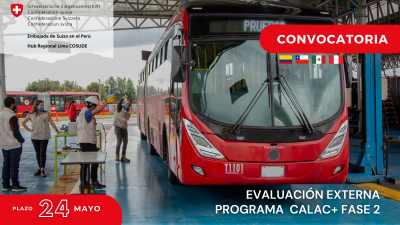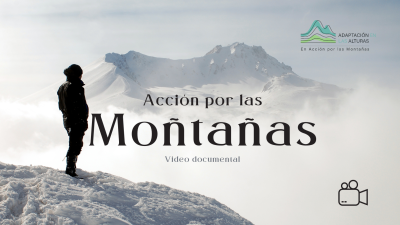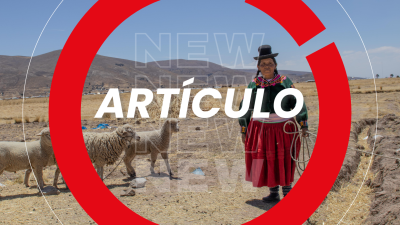The webinar examined the importance of public and voluntary water management systems in Brazil. It included representatives from the Brazilian National Water Agency, the Peruvian National Water Authority, the Chilean Agency for Sustainability and Climate Change and the Agualimpia and Fundación Chile NGOs, all key actors in water resource management in these countries.
As part of the project “Water Unites Us“, on 6 August the Global Compact Network Brazil partnered with the Centre for Sustainability Studies of the Getulio Vargas Foundation (FGVces), to hold the online seminar “Public and Private Mechanisms to Improve Water Management in Companies“.
Martin Jaggi, Head of the Swiss Agency for Development and Cooperation (SDC), attended the meeting and greeted the participants of the session. He highlighted the importance of corporate water management, which includes the importance of sharing experiences; and the role of public agencies and the business sector, which fosters opportunities for regional cooperation and integration, particularly of economic blocks such as Mercosur and the Pacific Alliance.
The webinar programme had two parts. The first, “Panorama da disponibilidade dos recursos hídricos do país e aplicação de instrumentos econômicos para a gestão” (Overview of the water resources available in the country and economic instruments for management), The meeting was attended by Oscar Cordeiro Netto, Director of Regulation of the Brazilian National Water Agency, Gustavo Velloso Breviglieri, researcher at the Getulio Vargas Foundation, and was moderated by Marina de Castro Rodrigues, Coordinator of Corporate Social Responsibility at Aegea Saneamento.
The first section was a good opportunity to share the main challenges of water management in Brazil. It focused on the geographical distribution of water resources, the economic and social pressures on water in the various regions of the country and the continuous work of monitoring water balances and hydro-meteorological phenomena, such as drought and heavy rainfall. It stressed the importance of water supply and sanitation, as well as the enactment of Law No. 14026, which grants ANA-Brazil the authority to regulate this sector.
The first session addressed the importance of the economic valuation of water, the relevance of this approach to water efficiency and the opportunities that can arise at times of water stress or drought. Gustavo Velloso Breviglieri, researcher at FGVces, highlighted the importance of water markets as an incentive for efficient water use and consumption reduction, which are vital at times of scarcity.
Oscar Cordeiro of ANA Brazil agreed on the importance of the economic value of water, emphasizing that this value is defined with the basin authorities, users and stakeholders, in order to finance water resource plans.
Panel 1 – Panorama da disponibilidade dos recursos hídricos do país e aplicação de instrumentos econômicos para a gestão
The second part “Certificado Azul: Estado reconhecendo empresas hidricamente responsáveis” (Blue Certificate: State that recognizes water-responsible companies), was presented by Alberto Alva, director of the Water Resources Administration Department of the National Water Authority of Peru; Giovanni Calderón, executive director of the Agency for Sustainability and Climate Change; and Claudia Galleguillos, leader of Water Strategies of Fundación Chile; and was moderated by Alejandro Conza, coordinator of the “El Agua nos Une – Perú” initiative.
In the second part of the webinar, the Peruvian National Water Authority presented the voluntary certification system, which led to a discussion of experiences during the programme’s creation and implementation in Peru and Chile, as a system that promotes sustainability and the participation of the private sector in water management.
The participants from Chile emphasized water risks and the importance of the Water Footprint for implementing the Blue Certificate. They also explained that there are plans to develop tax incentives for companies that have the Blue Certificate, and recommended involving large companies’ chain of suppliers, and looking at the risks that arise in the areas where the companies are based.
The Peruvian participants highlighted the significance of the participation of users and the private sector. They described how the system grew from 2015 to 2020, and how other public agencies have joined the Water Footprint and Blue Certificate programme. They pointed out how this process has built up trust in the business sector and encouraged the sector to be responsible. They recommended other countries to recognize the importance of raising awareness and spreading information about the system, to foster a change in behaviour and improve water demand management.
Panel 2 – Certificado Azul: Estado reconhecendo empresas hidricamente responsáveis
The webinar concluded with the words of Giuliana Chaves Moreira, advisor on Corporate Water Management of the Rede Brasil do Pacto Global, and Oscar Cordeiro Netto, director of Regulation of the ANA – Brazil, who thanked the attendees and speakers for their participation, highlighting the need for further forums because they offer a chance to discuss experiences. They asked participants to stay in touch, to the benefit of water management in the region.
Links of interest:
SuizAgua Project: Project sheet, Swiss Embassy, Swiss Agency for Development and Cooperation (SDC)
Web El Agua Nos Une








